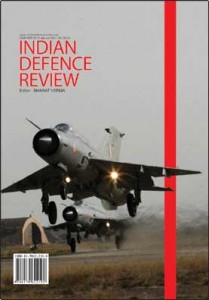The absence of substantive provisions of civil contempt in the Armed Forces Tribunals Act appears to be deliberate rather than a mere omission since the Administrative Tribunals Act on the civil side (by which the Central Administrative Tribunals are governed) has granted full powers of civil contempt. There is a mention of civil contempt in various rules and forms appended with the statutory Armed Forces Tribunals Rules albeit without any supporting section in the primary Act, a fact which points to a lapse at the drafting stage wherein the provision was omitted. Perhaps the Ministry of Defence knew that non-compliance of the orders would remain a rule rather than an exception. It is relevant that more than 90 percent of orders passed by Hon’ble High Courts and Tribunals, especially in pension matters, are not implemented till a contempt petition is filed.
| Editor’s Pick |
An interesting facet of judicial review of court-martials would be situations where the findings and verdict of the court martial runs counter to the gravity of offence and evidence available and the court martial maintains its findings even after revision orders. It would be appropriate that the appeal by the convening authority against such court martial verdicts comes to the Tribunal. That would enhance the credibility of the court-martials as also make them truly independent. The situation would then be reversed from what is generally that of the accused coming in appeal and the Tribunal would have fully served its purpose.
There are 22, 60,705 ex-servicemen in India (Press Information Bureau, Government of India, 27 July 2010). Their grievances need to be a cause for concern by the Government. It is a travesty that the Government does not even listen to its own Parliament and accepts less than half of the recommendations of the various parliamentary committees. In the case of Defence the statistics are even more dismal. When the standing committee on defence made 151 recommendations for the welfare of ex-servicemen, only 18 were accepted by the Government (India Today, 21 February 2011, p. 48).
 Money is a poor substitute for the loss of military personnel who “die with their boots on”. What is worse is the fact that it takes several decades, and having to struggle all the way to the Supreme Court, to get grave wrongs rectified, which do not amount to either compensation or closure. Soldiers and their families anxiously await the apex court’s taking a final call on its proposal to have a special, independent commission set up to deal with veteran’s grievances. It was easy for one of the government’s top law officers to contend that there was no requirement for such a body as systems were in place and a mechanism was being evolved to address grievances “at their doorstep” (The Statesman 11 February 2011). Till then, the Armed Forces Tribunals are the best forum for uniformed personnel to seek speedy justice.
Money is a poor substitute for the loss of military personnel who “die with their boots on”. What is worse is the fact that it takes several decades, and having to struggle all the way to the Supreme Court, to get grave wrongs rectified, which do not amount to either compensation or closure. Soldiers and their families anxiously await the apex court’s taking a final call on its proposal to have a special, independent commission set up to deal with veteran’s grievances. It was easy for one of the government’s top law officers to contend that there was no requirement for such a body as systems were in place and a mechanism was being evolved to address grievances “at their doorstep” (The Statesman 11 February 2011). Till then, the Armed Forces Tribunals are the best forum for uniformed personnel to seek speedy justice.





Col saab, very nice article, my regards and best wishes to you
Adv Sanjeev Kataria